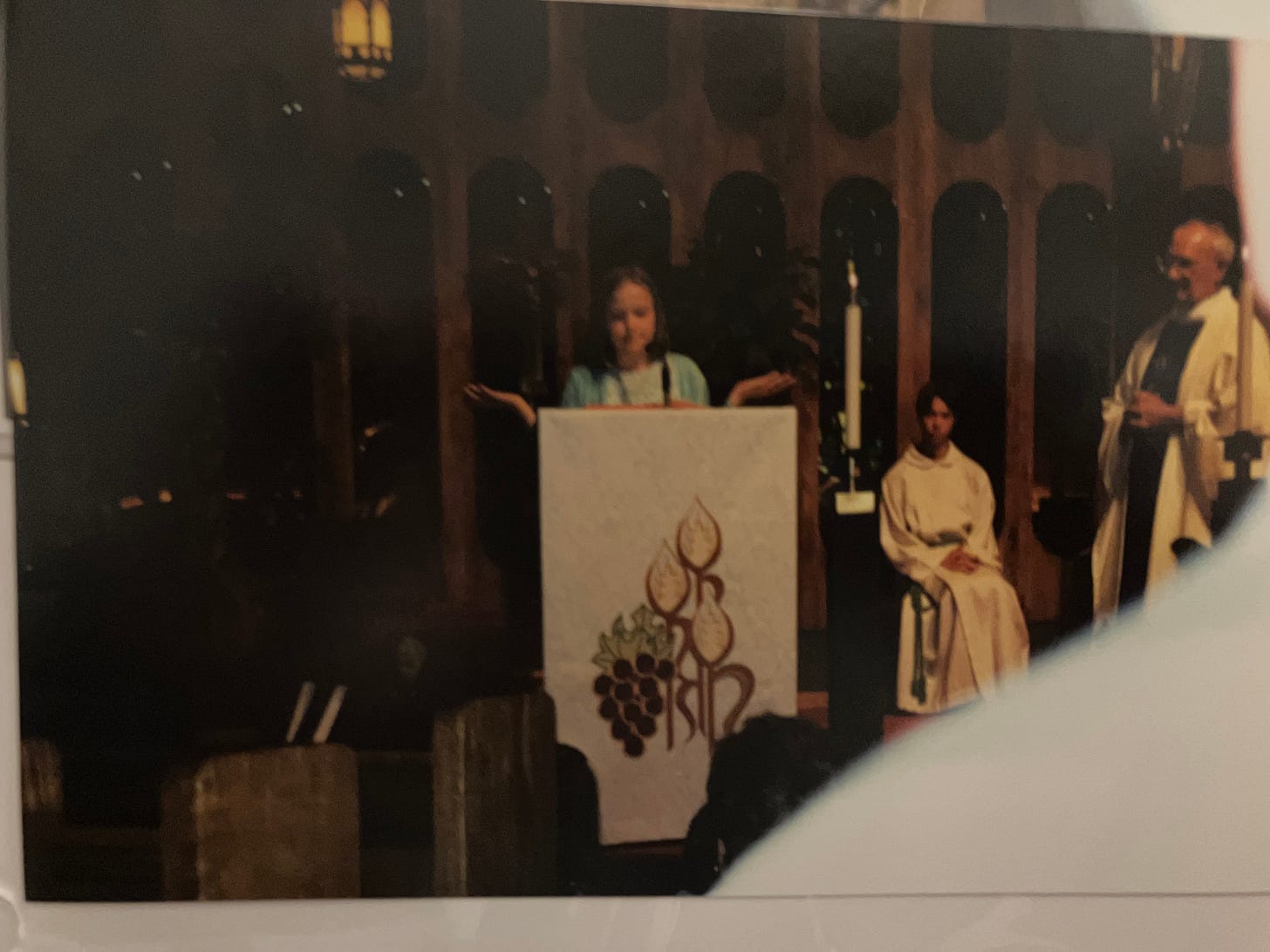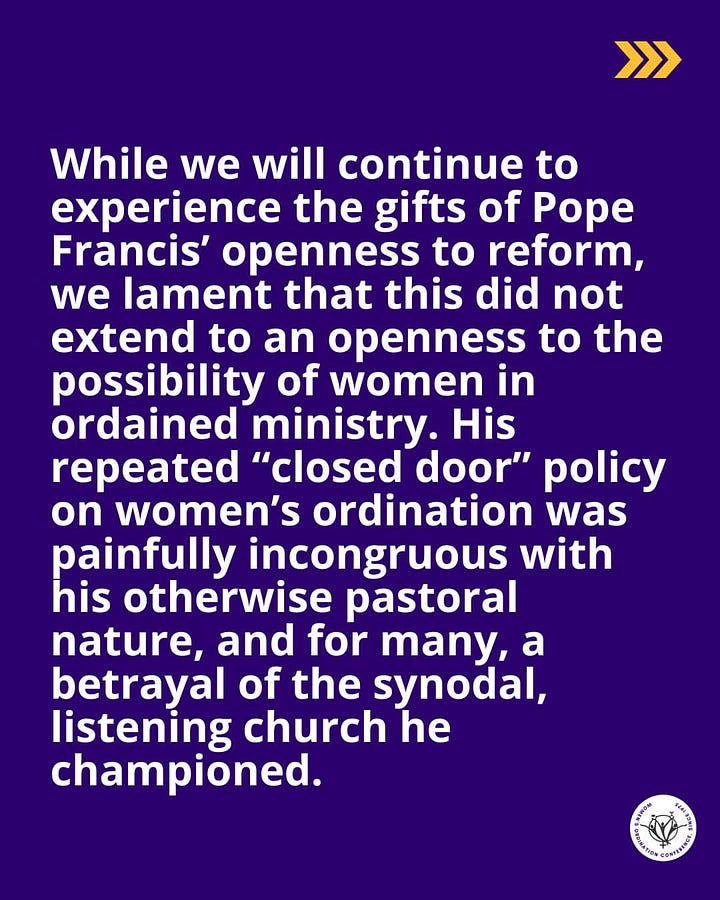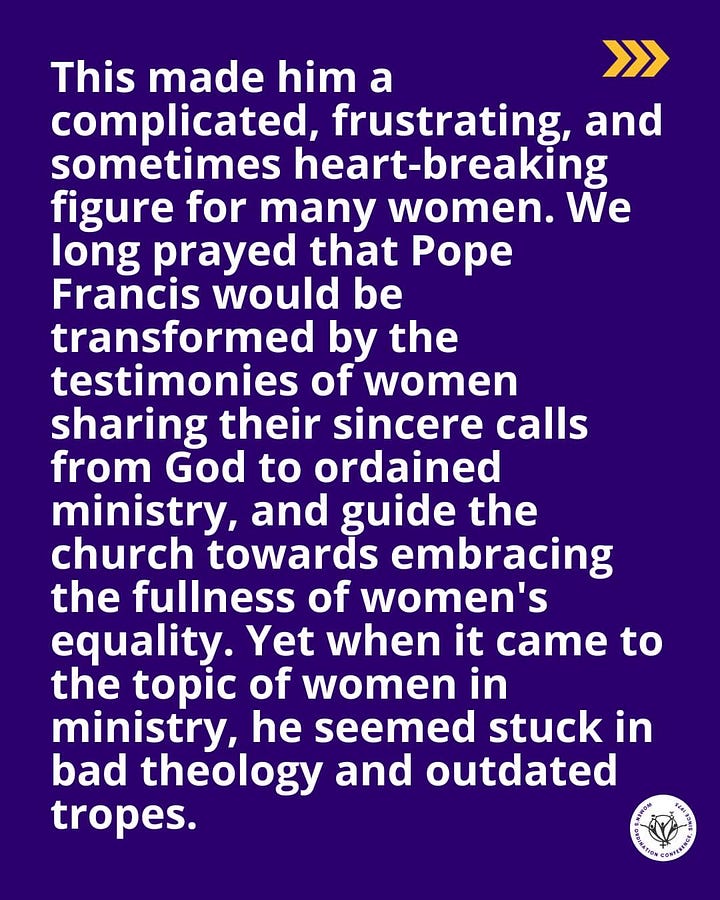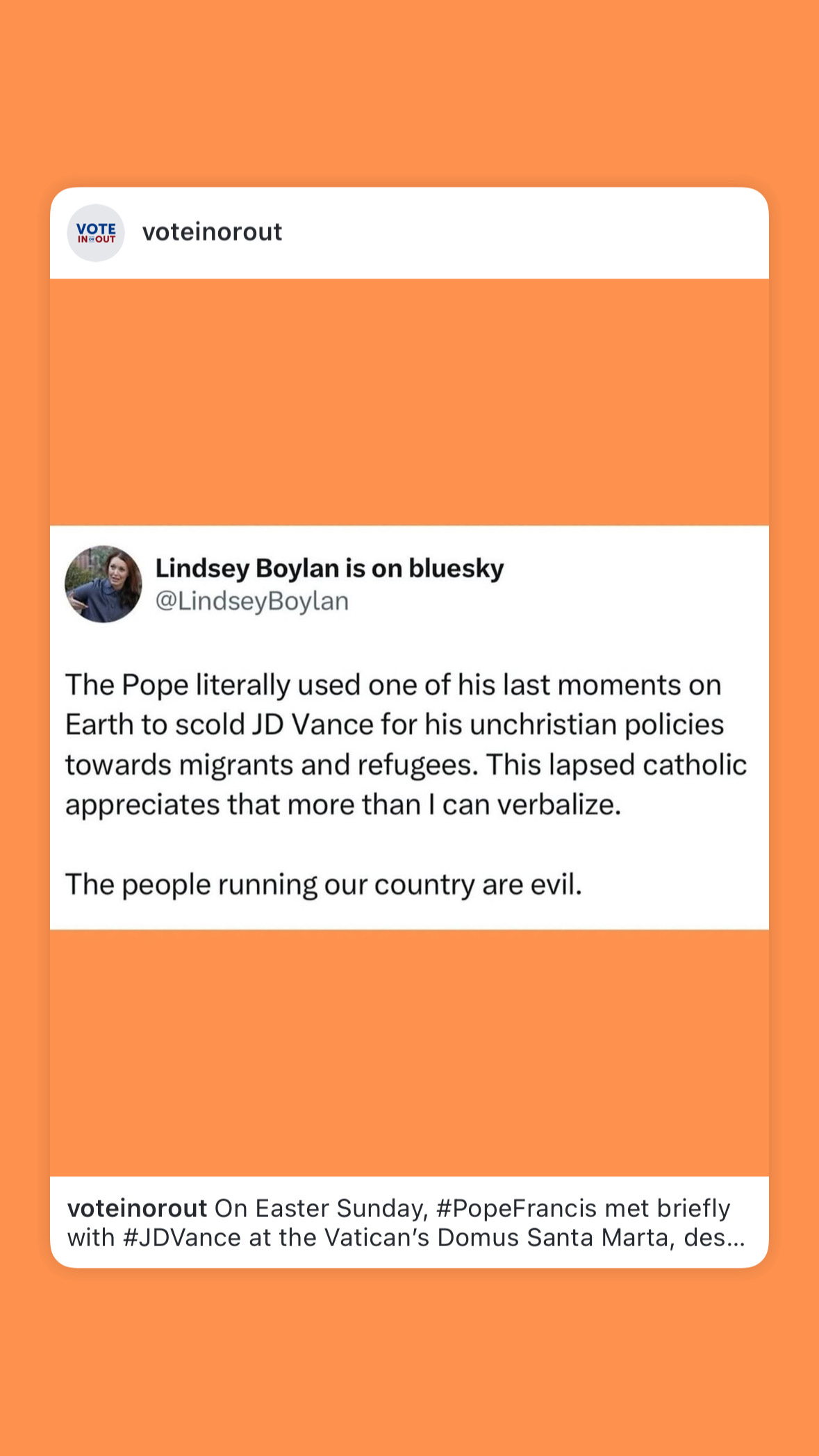Reflecting on Pope Francis's Legacy: Faith, Feminism, and a Seat at the Table
A Discussion of Francis's Complicated Yet Transformative Polices and a Reclamation of My Catholic Roots, On My Own Terms

April 22, 2025
Here is how the stereotypes go: only true Christ followers identify with conservative political ideology, and Christianity is not an option for progressives. Even more ingrained is the belief that feminist concepts and faith cannot coexist, or that women must never show up as equals to men in Church leadership.
I’m not the only person speaking to the hypocrisy of these overly simplified illusions and the state of American Christianity under Donald Trump, but I continue to contribute to the strong voices moving our faith communities toward true equality and safety. Most notably, the data shows that harm to children and women in religious spaces originates when women aren’t allowed to serve as pastors, priests, or deacons.
According to Beth Allison Barr, James Vardaman Professor of History at Baylor University and author of the bestseller, The Making of Biblical Womanhood: How the Subjugation of Women Became Gospel Truth:
“The rejection of women as leaders and the collective indifference to women who’ve been harmed is consistent with research that suggests a correlation exists between conservative theology, such as espoused by many Southern Baptists, and beliefs that rationalize and enable abuse against women.”
Considering the revelations of sexual abuse cases within Catholic leadership and Evangelical churches and organizations, such as the Institute in Basic Life Principles (IBLP) founded by Bill Gothard, inclusive and functional spiritual communities with a strong foundation in gender and sexual equality are crucial. Otherwise, the system harms and abuses its supposed “outsiders.”
Rigid systems always break, and the breaking often takes people from both within and outside the system to catalyze progress.
This is why I’ve finally chosen to continue associating with the Irish Catholic faith tradition in which I was raised.
That said, I want to make it abundantly clear: I am pro-choice, openly accepting of LGBTQ+ individuals, and a strong advocate for women’s ordination in the Roman Catholic Church.
These Catholic organizations also follow my values:
Note too that Dorothy Day, American journalist and activist (November 8, 1897 – November 20, 1980), also made significant strides within her role in the Catholic Church as the Co-Founder of the Catholic Worker Movement.

In “Was Jesus Really a Feminist?”, I wrote:
“In none of these stories does Jesus punish, condemn, or support the oppression of these women. Through his actions, he makes his point abundantly clear — women are equal to men.
I believe that Jesus wanted to see a new way for these women in his patriarchal world, and because of this, women became important players in the early Christian movement, sharing the good news of love and acceptance for all.”
If Mary of Magdala was the first disciple to witness the risen Jesus on Easter Sunday, why isn’t her testimony evidence enough to allow women a seat at the table?
(I suspect you know the answer to that question.)
What Pope Francis Got Right & Wrong
While he did his best within an ancient institution, Pope Francis (December 17, 1936 – April 21, 2025) was the first leader of the Church to give women prominent roles within his administration. Under Francis, women also voted for the first time at the Vatican.
If you’re not familiar, the Vatican is a sovereign country and holds political power globally. This is why Francis recently wrote to U.S. bishops urging them to stand against Trump’s mass deportation plans.

I remember the first video I saw from Pope Francis that delved into the dangers of climate change. I was early in my journey as a progressive voter, and his words reflected the values I was just beginning to embrace: environmental stewardship, compassion for the vulnerable, and a faith that calls us to action. The message echoed the Christian principles I’d soon fully embrace: “faith without works is dead,” and “whatever you did for the least of these, you did for me.”
However, even as he made historic strides in giving women more visible roles within the Vatican, Francis continued to maintain a closed-door stance on the ordination of women as priests and deacons. This was problematic for many of us who had hoped for better:


Despite his firm posture against the ordination of women, history will remember Francis as our most progressive pope to date. (Honestly, that takes guts.)
He advocated for migrants fleeing conflict and for the poor and marginalized. He continually checked in with Palestinian churches during the latest Gaza War. He blessed queer couples and openly allowed the baptism of transgender individuals, recognizing their right to serve as godparents. He advocated for the Earth and created new opportunities for Catholic women after centuries of silence and subjugation. Francis also spoke out against Trump and his discriminatory policies — even as American Christians, with scales over their eyes, screamed that Trump is God.
All of this to say, I, too, wish for what the Women’s Ordination Conference seeks:
“May [Francis’s] vision for a more merciful and compassionate Church continue to inspire transformative change.”






